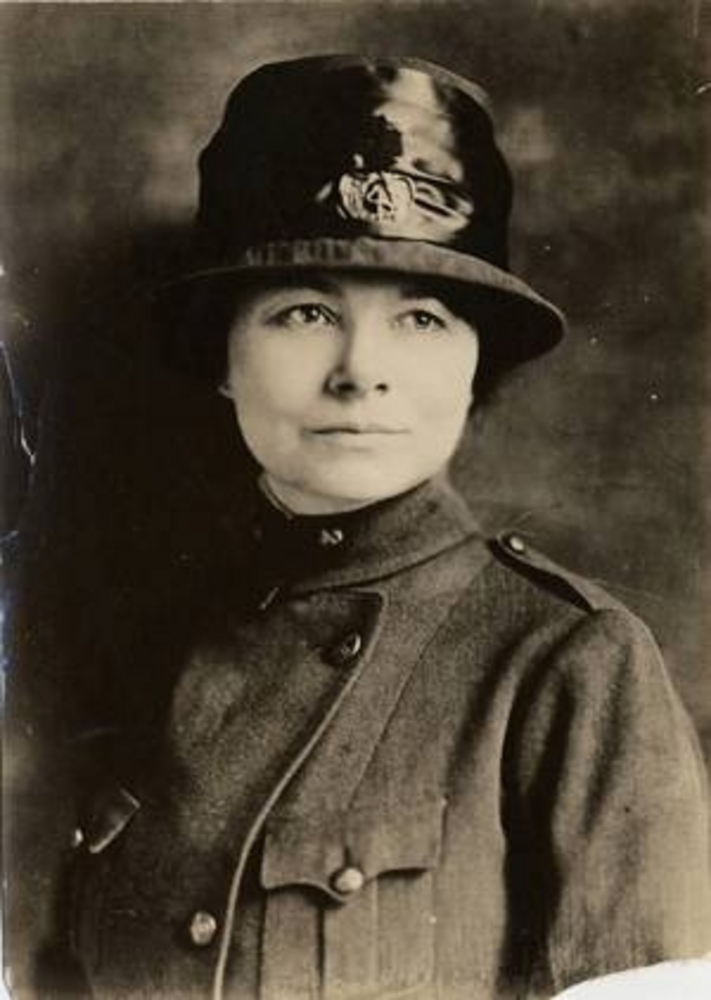Lizzie Koontz Weeks was an African American activist in Portland in the years after women in Oregon had achieved the right to vote in 1912. She organized Black women to empower them to be successful voters and was an early candidate for local party office. Weeks was the first female African American social worker to be employed by Multnomah County.
Lizzie Koontz was born in in 1879 in Washington, D.C. In 1904, she married George W. Weeks, who worked as a packer for Prael, Hegele and Company, a kitchen and tableware store in Portland.
Oregon women achieved the right to vote in 1912, several years before the Nineteenth Amendment to the Constitution became law in 1920. In the fall of 1914, in the first national election after the success of woman’s suffrage in Oregon, Weeks helped organize a meeting in Portland of African American women who supported the Republican Party, the party of most Blacks from the time of the Civil War until the Great Depression. The group formed the Colored Women’s Republican Club and elected Weeks, who was already a registered voter, as president. At the conclusion of the meeting, the group went to the Multnomah County courthouse so that those who were not yet registered could do so.
Weeks and her colleagues then focused on voter registration of other African American women in Portland, urging them to vote the Republican ticket and inviting local candidates to present their positions at club meetings at the Central Library. In 1916, Weeks took part in a citywide voter registration drive sponsored by Republican women. Two years later, in 1918, she was a candidate for Republican precinct committee member.
A path-breaking social worker in Portland, Weeks was the first African American woman employed as a matron at the Frazier Detention Home, a juvenile facility in Multnomah County. Judge George Tazwell appointed her as a probation officer for the Juvenile Court. In 1920, she began work as a probation officer in the Multnomah County Court of Domestic Relations, even as some white social workers objected. Judge Jacob Kanzler supported Weeks and her successful work in the face of these challenges.
Weeks was a member of Portland’s Bethel African Methodist Church and participated in fund-raising activities for the congregation. In 1912, she was one of five commissioners representing Oregon on the National Emancipation Commemorative Society to recognize the fiftieth anniversary of the signing of the Emancipation Proclamation. With other African American clubwomen in Portland, she entertained visitors to the community and helped build networks with activists outside Oregon. Records are sparse for information about her later life, but documents show that Weeks died in Portland in 1976.
Lizzie Weeks left a legacy of activism in Portland by organizing African American women for political action, seeking elective office at the local party level, representing Oregon in national organizations and networks, and working to build her community. She forged a significant path in social work in the city and the state.
-
![Lizzie Weeks, 1919]()
Lizzie Weeks, 1919.
Lizzie Weeks, 1919 Courtesy Oreg. Hist. Soc. Research Library, 82699
Related Entries
-
![Harriet "Hattie" Redmond (1862-1952)]()
Harriet "Hattie" Redmond (1862-1952)
Harriet “Hattie” Redmond was a leader in the long struggle for Oregon w…
-
![Mary H. Carr (1823?–1911)]()
Mary H. Carr (1823?–1911)
Mary H. Carr was an enterprising and respected member of Portland's ear…
-
![Mary Laurinda Jane Smith Beatty (1834–1899)]()
Mary Laurinda Jane Smith Beatty (1834–1899)
Mary Beatty, one of the first Black women west of the Mississippi to ad…
-
Woman Suffrage in Oregon
The campaign to achieve voting rights (also called suffrage or the fran…
Related Historical Records
Map This on the Oregon History WayFinder
The Oregon History Wayfinder is an interactive map that identifies significant places, people, and events in Oregon history.
Further Reading
“Advisory Board and Officers of Colored Women’s Republican Club.” Oregonian, October 25, 1914, Section 2, 4.
“Colored Folk Join Republican Force.” Oregonian, October 14, 1914, 14.
McLagan, Elizabeth. A Peculiar Paradise: A History of Blacks in Oregon, 1788-1940 (Portland, OR: The Oregon Black History Project, Georgian Press, 1980): 115.








